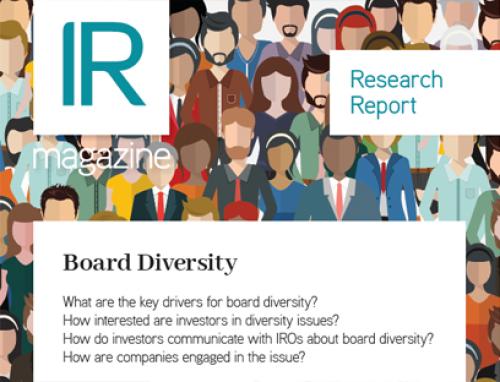Compensation immune to recession, according to survey
Hard economic times haven't much dampened demand for good IR according to a new survey conducted by NIRI and management talent scout Korn/Ferry International. The survey of NIRI member and Fortune 500 IROs shows average base salary ranges along with departmental budgets and staff have held roughly steady since the recession began.
'These results are very supportive of the value that high-quality IR brings to public companies,' says NIRI president and CEO Jeff Morgan. 'High-performing IROs should recognize this value and if they aren’t already doing so, take steps to ensure their management team is aware of this value. Top-notch IROs can and should use their record of performance to their advantage as they seek to negotiate a fair compensation package based on the increased value they bring to the organization.'
The survey revealed the average respondent's salary of some $168,000 with a median of $156,000. While the largest survey segment reported a range of $126,000 to $150,000, about half of Fortune 500 respondents earned more than $225,000 in annual base salary. La crème de la crème report netting as much as $700,000.
When viewed by title, 84 percent of 'manager'-titled respondents reported a base salary less than $125k. Almost half of 'senior vice president'-titled survey participants reported a base in the range of $201,000 to $275,000.
In terms of non-salary compensation, 80 percent of respondents receive equity. Compared to the last survey in 2008 – fewer are getting stock options (63 percent versus 71 percent) – while a greater proportion now receive restricted stock/units (75 percent versus 63 percent).
One key compensation area that took a modest post-recession hit was that of cash bonuses which declined for 65 percent of respondents. Still, for 41 percent of Fortune 500 respondents, that meant a bonus of at least $100k.
Over 50 percent of respondents held a Masters in Business Administration, with 28 percent hailing from corporate finance and 16 percent from an accounting background
NIRI's Morgan argues the results demonstrate that a communications background is definitely an asset but adds, 'The most successful IROs are very comfortable working their way through financial statements, and understand the nuances of equity valuations etc’. Morgan notes NIRI provides relevant education to get up to speed, but also recommends non-financial types consider taking a few accounting and/or finance classes.
A press release quotes Pepper Binner, senior client partner in the Corporate Affairs Practice of Korn/Ferry International. 'During the recessed market, many IROs took on greater workloads as organizations downsized, most without receiving a salary adjustment,' says Binner. 'As the economy rebounds we are seeing the hiring market open up, with demand particularly high for IRO candidates with steep financial acumen and analyst capabilities, experience building an IR function from the ground up, and crisis communications expertise. Employers would be wise to think competitively about their compensation strategy in order to recruit the best IR talent available in the market, and retain the existing talent they have within their organization.'










